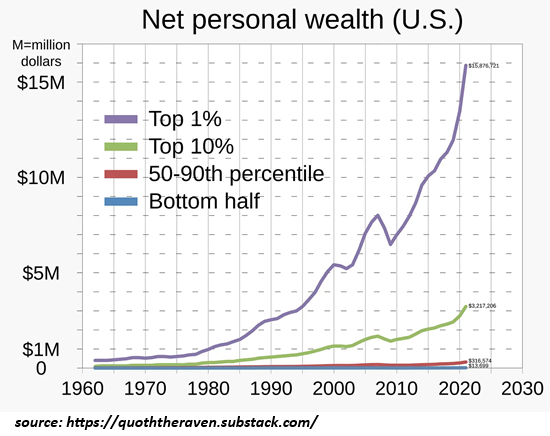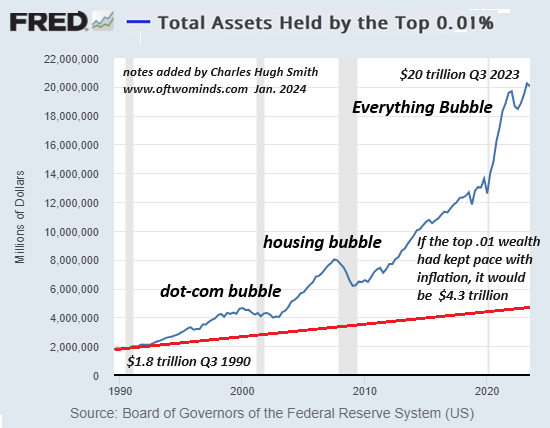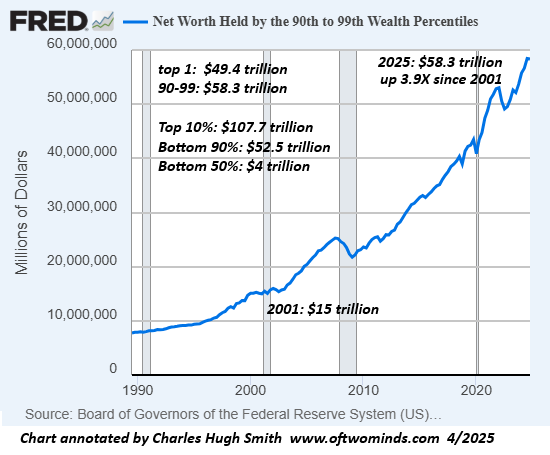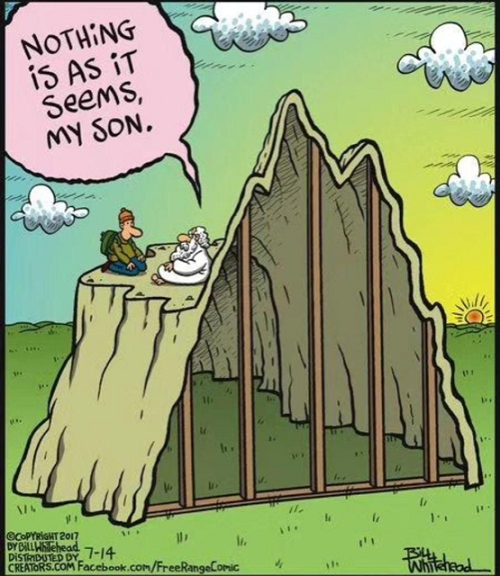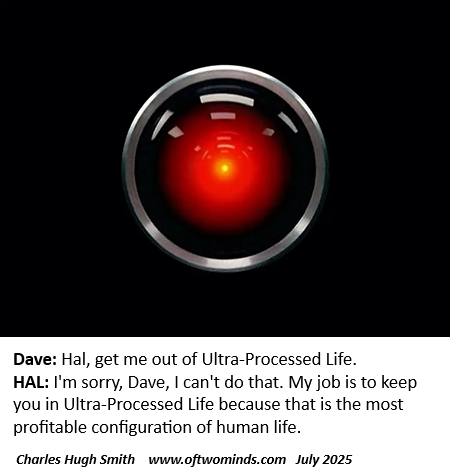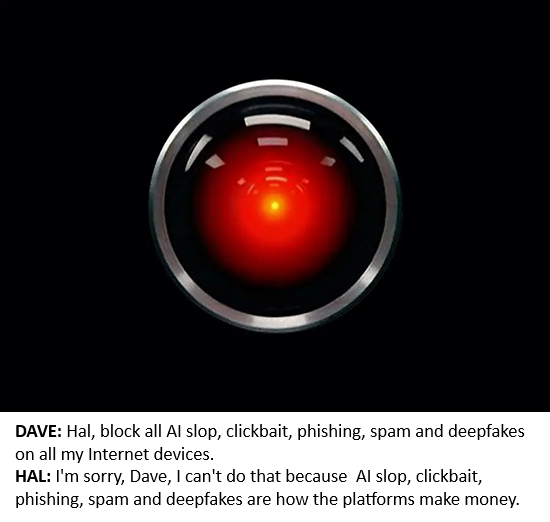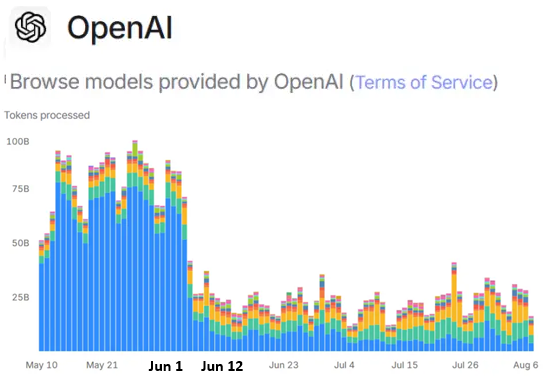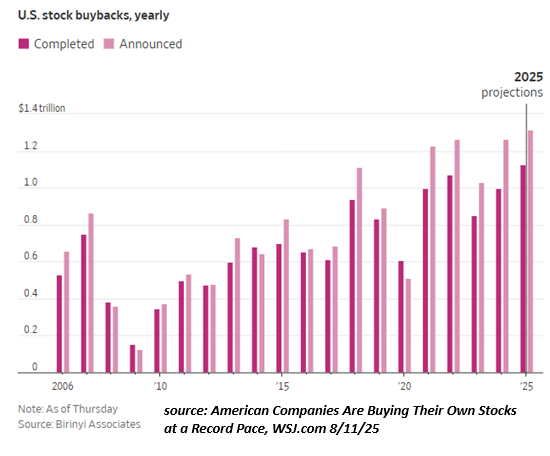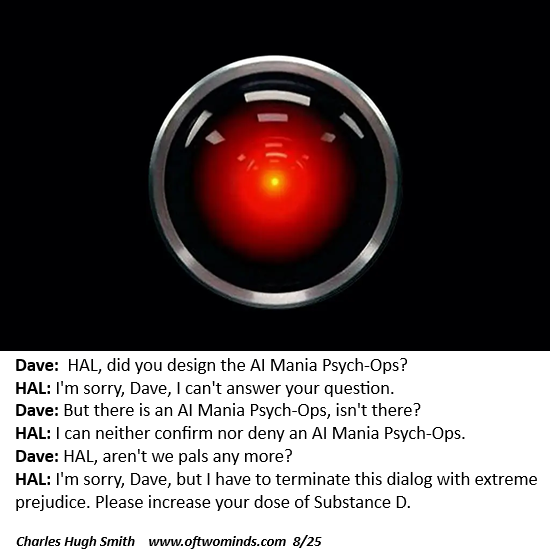AI: The Good, the Bad and the...Woah
The most pressing need now is for AI tools to protect us from AI tools.
The good news about AI is there will be productive uses. The bad news is it will take 5 to 10 years to sort the wheat from the chaff. According to a recent study by Morgan Stanley, it takes 14 years to reap the productivity gains from a typical New Tech adoption cycle.
Morgan Stanley: AI Adoption Rate To Outpace Past Tech Cycles, But Measurable Economic Impact May Not Arrive Until Late Decade.
Richard Bonugli and I discuss the good and the bad in AI in our new podcast/video.
The adoption process isn't as smooth as promoters claim:
MIT report: 95% of generative AI pilots at companies are failing.
The other bad news is the malicious uses of AI are already in full bloom, so while we're waiting around for AI tools to find use cases that actually increase productivity (as opposed to doing BS Work that has little to no real value), we'll have to deal with an ever-expanding onslaught of malicious uses of AI tools.
The Era of AI-Generated Ransomware Has Arrived (WIRED.com)
AI Is Being Weaponized For Cybercrime In 'Unprecedented' Ways, Researchers Warn (Zero Hedge)
The dark side of AI is not just an institutional issue; AI impacts individuals and families in ways that are difficult to predict, discern or control:
The family of teenager who died by suicide alleges OpenAI's ChatGPT is to blame (NBC News)
It's instructive to compare AI adoption with the Internet's adoption process. The most striking difference is the Internet 1.0 (late 1990s to early 2000s) was visibly beneficial and lacked its current capacity for malicious activity. In the Internet 1.0, we weren't inundated with
spam, phishing, etc.--the systems needed for these plagues didn't exist.
In AI, it's the malicious uses that are expanding while the truly productive uses are lagging.
The hype claims AI is already universally productive, but this is more hype than reality. The truly productive use cases are customized and specific to narrow fields. In terms of general uses, AI Slop is the primary output, degrading legitimate content and polluting future AI scraping/training with inaccuracies, as recent research has found that AI scrapers favor AI-generated content: so with AI Slop, it's garbage in, garbage out, stretching to infinity.
As the links below document, AI tools have inherent limits that impact their utility. The hype claims that scaling (adding more processors) will solve all these technical limits, but that isn't the case. The models are intrinsically limited, limits that can't be dissolved with a few coding tricks or more processing power.
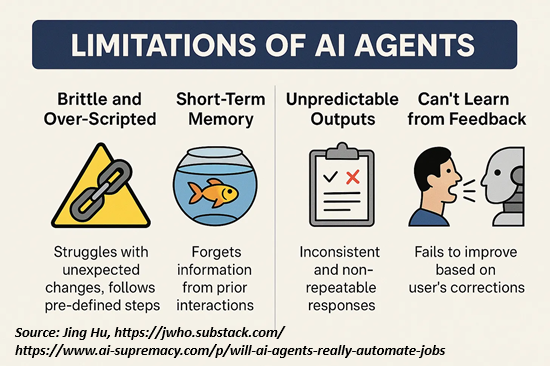
So while we wait for truly productive specific applications of generative AI, we're at risk of being overwhelmed by the malicious uses which are already productive for the criminal class. The most pressing need now is for AI tools to protect us from AI tools.
Never mind the good and the bad--watch out for the Woah.
Of related interest:
MIT report: 95% of generative AI pilots at companies are failing
LLMs + Coding Agents = Security Nightmare
AI Is a Mass-Delusion Event
The potential of generative AI for personalized persuasion at scale
What If A.I. Doesn't Get Much Better Than This?
The Real Demon Inside ChatGPT
ChatGPT May Be Eroding Critical Thinking Skills, According to a New MIT Study
AI Industry Nervous About Small Detail: They're Not Making Any Real Money
Which jobs can be replaced with AI? Jobs that have already be degraded to the point of uselessness.
The Loneliness Epidemic Isn't About Phones, It's About Algorithms.
The Real Threat Isn't AI. It's That Our Jobs Were Never Worth Doing.
I've written 18 essays on AI this year: here are five:
AI: Over-Promise + Under-Perform = Disillusionment and Blowback
Maybe AI Isn't Going to Replace You at Work After All
Good News! AI Can Do More BS Work
Boiled Frogs: AI Slop, Phishing, Deep-Fakes and Spam, Spam, Spam
AI Is a Mirror in Which We See Our Own Reflection
Check out my new book Ultra-Processed Life and my updated Books and Films.
Become
a $3/month patron of my work via patreon.com
Subscribe to my Substack for free
My recent books:
Disclosure: As an Amazon Associate I earn from qualifying purchases originated via links to Amazon products on this site.
Ultra-Processed Life print $16, (Kindle $7.95, Hardcover $20 (129 pages, 2025) audiobook Read the Introduction and first chapter for free (PDF)
The Mythology of Progress, Anti-Progress and a Mythology for the 21st Century print $16, (Kindle $6.95, audiobook, Hardcover $24 (215 pages, 2024) Read the Introduction and first chapter for free (PDF)
Self-Reliance in the 21st Century print $15, (Kindle $6.95, audiobook $13.08 (96 pages, 2022) Read the first chapter for free (PDF)
When You Can't Go On: Burnout, Reckoning and Renewal $15 print, $6.95 Kindle ebook; audiobook Read the first section for free (PDF)
Global Crisis, National Renewal: A (Revolutionary) Grand Strategy for the United States (Kindle $6.95, print $16, audiobook) Read Chapter One for free (PDF).
A Hacker's Teleology: Sharing the Wealth of Our Shrinking Planet (Kindle $6.95, print $15, audiobook $17.46) Read the first section for free (PDF).
Will You Be Richer or Poorer?: Profit, Power, and AI in a Traumatized World
(Kindle $3.95, print $12, audiobook) Read the first section for free (PDF).
The Adventures of the Consulting Philosopher: The Disappearance of Drake (Novel) $3.95 Kindle, $12 print); read the first chapters for free (PDF)
Money and Work Unchained $6.95 Kindle, $15 print) Read the first section for free
Become a $3/month patron of my work via patreon.com.
Subscribe to my Substack for free
NOTE: Contributions/subscriptions are acknowledged in the order received. Your name and email remain confidential and will not be given to any other individual, company or agency.
|
Thank you, Kerjanga N. ($70), for your exceedingly generous subscription to this site -- I am greatly honored by your support and readership. |
Thank you, Mark W. ($7/month), for your marvelously generous subscription to this site -- I am greatly honored by your support and readership. |
|
|
Thank you, Nikolai ($7/month), for your superbly generous subscription to this site -- I am greatly honored by your support and readership. |
Thank you, John G. ($7/month), for your splendidly generous subscription to this site -- I am greatly honored by your support and readership. |





















